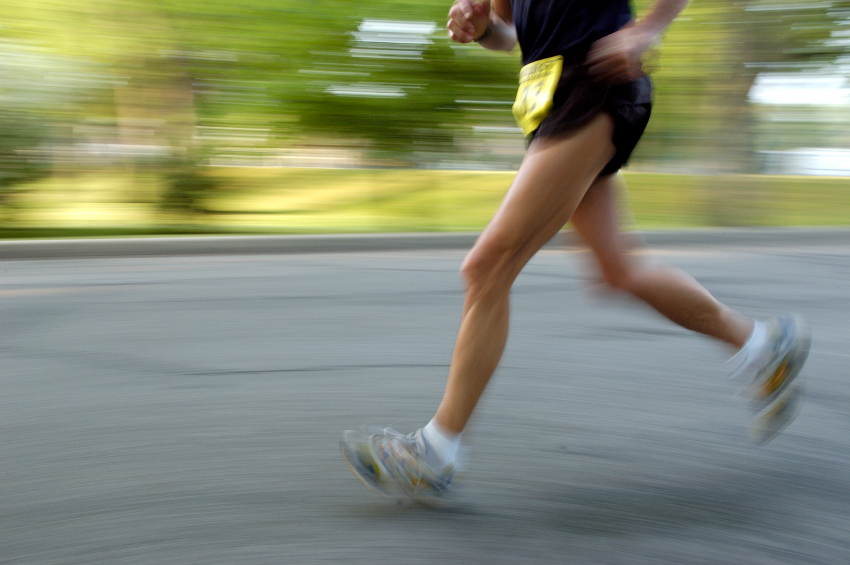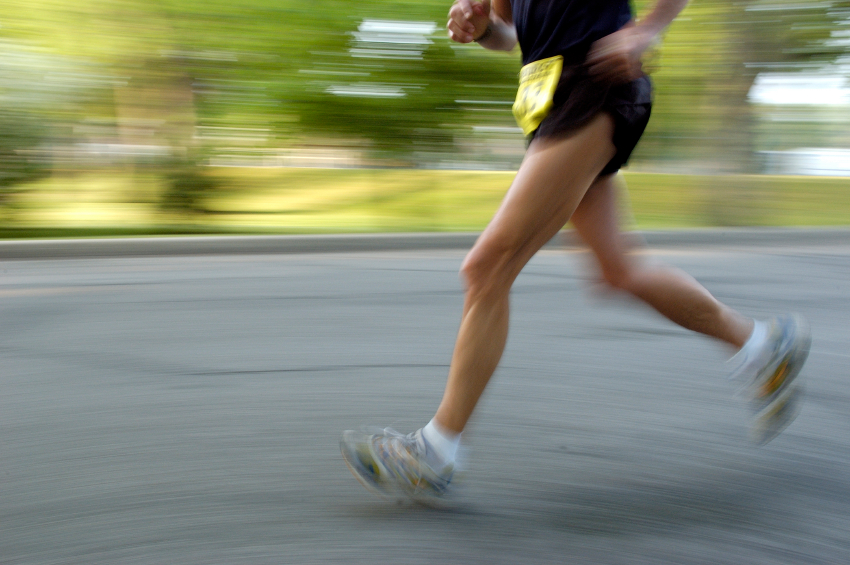Q. Hi Umbra,
I’m a long-distance runner in need of a new pair of shoes. I’m looking for the company with the most sustainable practices. Any suggestions? I’ve heard some promising things from different companies (e.g., Nike’s shoe-recycling program, ASICS’ commitment to recycled materials), but I remain undecided about what which company offers the best overall choice for the environment, for workers, and for my legs. Thanks!
Kyle
Marquette, Mich.
A. Dearest Kyle,
There is no way to answer your question without a seeming overabundance of puns. I will attempt to hold my tongue.

Feet of engineering.
I am impressed by all that running shoe companies are doing to reduce their ecological footprint. It would be easy to feel dejected after reviewing all the problems with shoes. Luckily, I wrote about leather vs vinyl shoes last year and so need only give a brief review here before celebrating positive developments in the road to better footwear. Shoe issues include: too many made, too many thrown away, too many toxins in the shoe, so many different parts in the shoe, which all need to be glued together and each have their own affiliated up- and down-stream pollutants, global shipping, and lots of waste material in the manufacture and packaging.
Several of the larger running shoe manufacturers, and some new brands, are making what seem to be sincere efforts to narrow the EE-width athletic shoe footprint down to an AA. I should say here that I thoroughly enjoyed and have taken a lot of information from a long piece in Runner’s World about the shoemaking universe.
Areas targeted for improvement have included improving packaging via recycled and lighter boxes with soy-based ink, putting fewer materials into a shoe, using less-toxic or less glue, altering manufacturing processes in order to reduce waste, and integrating recycled and biodegradable materials. The three manufacturers who made me the most interested were Nike, Brooks, and a startup called END.
Nike is insanely gigantic, but if it makes even a small positive per-shoe alteration, that translates into a significant change. Its Considered line intends to achieve significant improvements in waste, solvent use, and materials used. Brooks says it has a biodegradable midsole (I infer that this is part of the middle of the sole), has been making them in a less waste-producing way, and has also taken action on the packaging front. END is a new company making shoes with less stuff in them.
Other companies are also taking action. Adidas has reduced VOC emissions and Reebok is using recycled material, among other things. So, in all, we are beyond the phase of recycling old shoes and into a good new phase of creating less terrible shoes to begin with.
Now where this leaves us in terms of Best, I’m not sure. As you mention, there are still labor issues to consider, which I won’t delve too far into here but which you can find out more about by reading reports from organizations such as the Fair Labor Association, by visiting Coop America, and of course by general googling of your brand.
I certainly have no knowledge about performance, since I consider three miles a long-distance run. How about this: You must have a few brands that fit your feet and perform well for you. If they are one of the brands I’ve mentioned, look in to their corporate statements a bit, see if your conscience agrees with mine that a bit of good corporate effort is worth supporting, and buy away. Otherwise I’ve left you at — ahem — the starting line.
Topsolely,
Umbra



